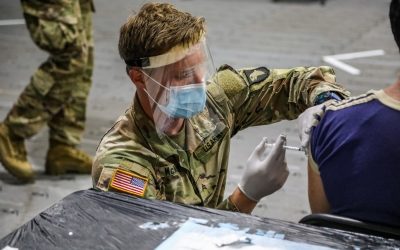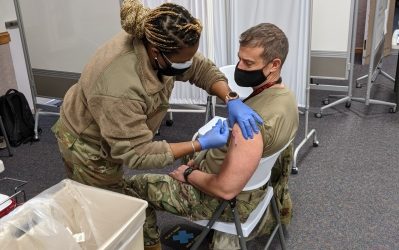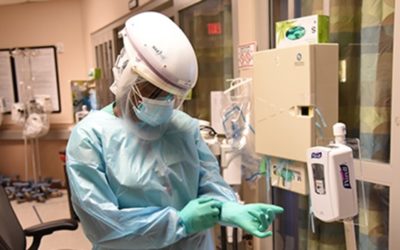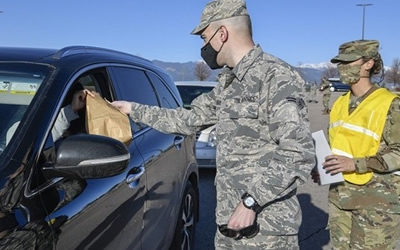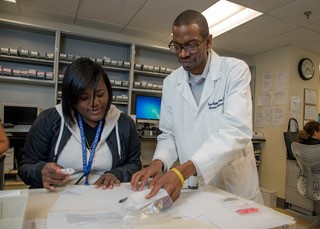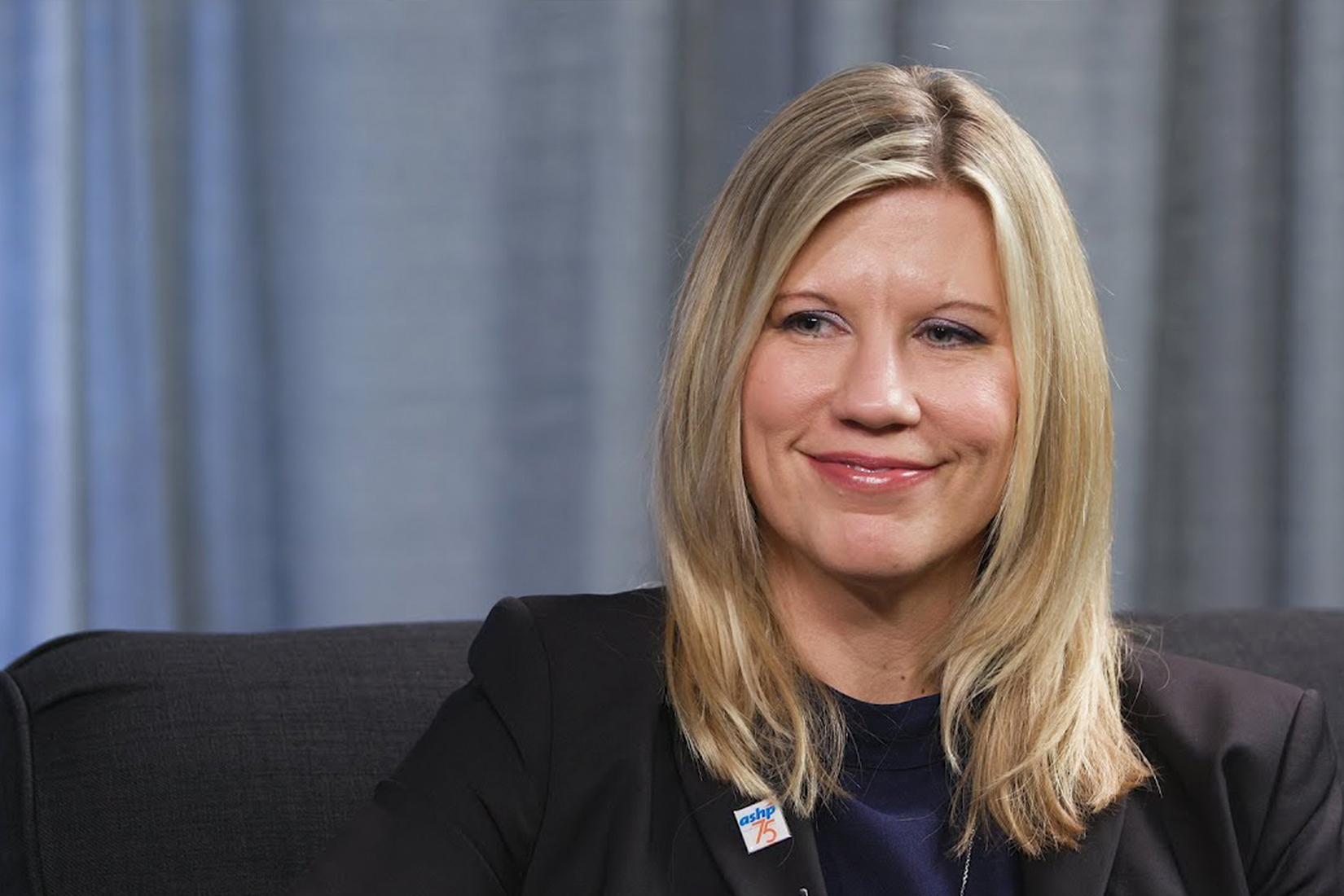HIV patients on anti-retroviral therapy are at increased risk for cardiovascular events, heightening the importance of preventive care. Now, new research has found that selection of blood pressure medication is critically important for this group and can have a significant effect on risk of cardiovascular events or even death.
DoD Personnel Critical in Getting Civilians Immunized Against COVID-19
In an effort to get as many COVID-19 shots into arms as possible as quickly as feasible, the military is continuing to supply personnel to help the Federal Emergency Management Agency at mass vaccination sites.
Servicemembers Affected by Toxic Exposures Need More Specialized Healthcare
Government medical agencies need to view toxic exposure as a high-priority issue deserving of specialized centers for research and monitoring.
Slow Postal Service Hits Veterans Hard With Medication Delivery Delays
The U.S. Postal Service (USPS) has long been the most popular government institution in the country, but cascading delays in the last eight months have threatened its preferred position as both businesses and individuals suffer from lost and stranded mail and packages.
A Third of Military Healthcare Beneficiaries Refuse COVID-19 Vaccine
About one-third of military servicemembers, civilian contractors and military family members are declining to be vaccinated for COVID-19, and that has DoD officials concerned.
Metformin Appears Underused for T2D in Veterans
About 80 million prescriptions are written in the United States each year for metformin.
FDA Updates Covid-19 Vaccine Label to Urge Use of ‘Sixth Dose’
The Food and Drug Administration has approved an updated label for the Pfizer-BioNTech vaccine, urging that the sixth dose in vaccine vials be used.
Million+ Cases Suggest ACEIs, ARBs Don’t Increase COVID-19 Risk, Severity
In the chaotic days when the COVID-19 pandemic first began to affect the United States, healthcare professionals were barraged with questions about certain blood pressure medications and whether they increased infection risk for patients using them.
Legislators Push for VA, DoD to Preferentially Purchase U.S.-Made PPE
As the pandemic numbers rose last spring, the VA discovered what hospital systems across the country were learning—that the usual supply chains for personal protective equipment (PPE) could not handle the demand, and the gray market was rife with price-gouging and low-quality products.
Daily Aspirin Use Appears to Lower Severity of COVID-19 Cases
With all of the testing of complex new therapies to lower severity of COVID-19 infections, a simple and common practice — taking a daily aspirin to protect against cardiovascular disease – has shown some promise.
Academic Detailing Pharmacists Add Pandemic Role: Telehealth Champions
For academic detailers, acting as change agents is nothing new. It’s central to their work as clinical pharmacy specialists and educators. This year, the academic detailers at the VA found their transformative role included a new and urgent responsibility—increasing provider comfort with telehealth technology.
Opioid Prescribing Common to Military Spouses
While use and misuse of opioids by active-duty servicemembers has been examined in several studies, much less is known about use of painkillers by their spouses.
VA Defends Use of Hydroxychloroquine in Veterans With COVID-19
WASHINGTON — Legislators and veterans advocates are concerned about VA’s continued use of hydroxychloroquine, an antimalarial also commonly used to treat rheumatoid arthritis and lupus, on COVID-19 patients.
Many MTF Pharmacies Now Offer Drive-Through, Curbside Pickup
BETHESDA, MD—Pharmacies throughout the Military Health System have taken steps to protect their customers and staff from exposure to COVID-19 in recent weeks. Many have adopted curbside pickup and expanded drive-thru capacity. Others have adapted their physical...
A VA-Like Pharmacy Benefits Program Could Be a National Model
Potential to Fix Two Huge Problems with the U.S. Healthcare System CAMBRIDGE, MA—Rising drug prices have frustrated patients nationwide, often leading individuals to forgo needed therapies because they simply could not afford them. In some instances, cost-control...
VA Survey: Health Issues Are Greatest Concerns for New Veterans
Most Report Satisfaction with Work Life, Social Well-Being BOSTON — Health issues plague veterans, even when they first leave military service and are viewed as a bigger problem than finding work or establishing civilian social relationships. That’s according to a new...
Concerns About GI Events Continue With Sodium Polystyrene Sulfonate
OTTAWA, ONTARIO — Continuing concerns are being raised about the gastrointestinal safety of sodium polystyrene sulfonate, which is commonly prescribed for the treatment of hyperkalemia.
Pharmacist Medication Management Helps Diabetic Veterans, Physicians
Older age, obesity and Agent Orange exposure create a trifecta of diabetes risk for the VA.
Genetic Mutations Affecting Response to Drugs Are Common in Veterans
SALT LAKE CITY — A massive VA study revealed that 99% of veterans have at least one genetic mutation known to affect response to specific drugs, including some commonly prescribed antidepressants, anticoagulants, antivirals, oncology medications and statins. That raises the question of who should be tested for which variants and when, which has stirred lively debate within the VA.
Oral Cancer Therapies Create Critical Demand for Pharmacists
CHICAGO—The pace of U.S. Food and Drug Administration approval of oral anticancer medications has rapidly increased, from less than one a year at the turn of the century to 10 in 2018. While patients generally prefer taking oncolytics by mouth at home to intravenous...
DCVAMC Acting Pharmacy Chief Ivan Cephas: ‘Caring Is the Reason’
WASHINGTON—Ivan Cephas, PharmD, the acting chief of pharmacy at the DCVAMC, would be the first to say that what he does is not above and beyond the call of duty. Despite having been awarded the Bowl of Hygeia, one of the most prestigious pharmacy awards in the nation,...
New Military Pharmacy Program Frees Patients from Long Waits
More than a dozen military treatment facility pharmacies have implemented a pilot customer service system that gives patients greater control over how they spend their time while waiting for prescriptions to be filled.
New Venous Thromboembolism Guidelines Could Change Treatment at VA
Venous thromboembolism, which includes deep venous thrombosis and pulmonary embolism, is the most common preventable cause of hospital death, according to the VA.
Use of Non-VHA Pharmacies Increases Risks of Scheduled Drug Overdoses
Using multiple sources to get prescribed pain medications and other Schedule II through V drugs increases risks for veterans, a new study finds.
Shared Antimicrobial Stewardship Surveillance System Saves Three VAMCs $2.3 Million
Three VAMCs that formed a collaborative group to optimize use of a shared clinical surveillance system saved more than $2.3 million in two years.
PhARMD Program Continues to Expand Pharmacists’ Clinical Role in VA
A tool developed by the VA has raised the profile of pharmacists as critical members of patient care teams at the VA, leading to a doubling of the number of pharmacists serving as providers.
Is It Time to Abandon One-Size-Fits-All Dosing for Antibiotics?
Increased obesity among veterans and the general population might be leading to more hospitalizations for infections and greater instance of failed treatment in patients who have been hospitalized.
Better Retention and Outcomes With One Tablet Therapy for HIV Patients
Patients taking a single tablet to control HIV had better viral suppression and stayed in care at higher rates than patients who took multiple pills.
EMR Alert Helps Reduce Opioid/Benzodiazepine Co-Prescribing Risk at VAMCs
Since the launch of the Opioid Safety Initiative in 2012, the VA has implemented a number of steps designed to reduce the use of opioids and the risk of addiction and overdose among veterans.

